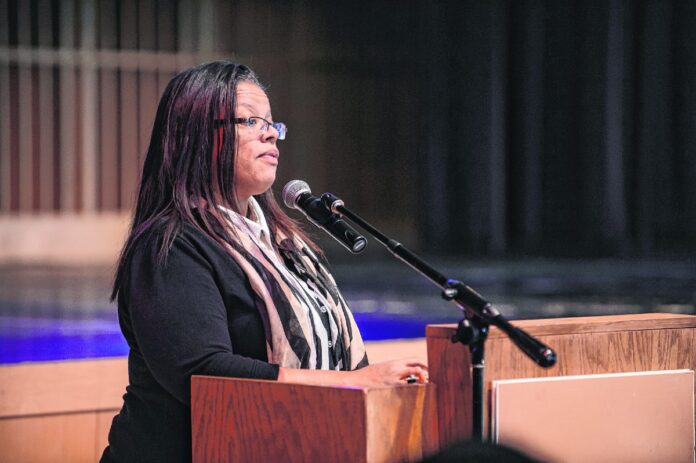
COLUMBUS, Ind. — Following the recent Capitol insurrection, some members of the community are wondering if like-minded individuals might also be found a little closer to home — possibly in local law enforcement agencies.
Columbus Police Department Chief Mike Richardson fielded questions Thursday about how the city police department screens potential hires, during a meeting of the Community Police Review Board.
Board member Olisa Humes noted that there has recently been talk of “infiltration” in police departments around the nation and asked what steps the CPD takes in its screening process.
Background investigations are conducted on potential hires, Richardson said. This process includes looking at all of the person’s social media, looking at any groups he or she is involved in, administering a polygraph test and more, he said. The process may include family, friends, coworkers and individuals who were previously involved with the job candidate.
“Obviously, you get a list of references, but we’re going to talk to a lot more people than just the ones you want us to talk to,” Richardson said.
In regards to the social media check, an investigator will request that the individual log into their social media accounts so that the investigator can look through it.
Richardson did say that if a person is aware of the process ahead of time, it’s possible that they could work to hide aspects of their social media by using different names or other means. He said that’s why the polygraph test is also used. As part of the test, individuals are asked if they’re involved in certain types of groups, though Richardson did not state which specific groups or movements are included in this question.
Richardson was also asked if there is screening for current members of the department.
“On a continuum basis, how do you weed out people that are currently in the force, who may have evolved and have changed their ideology and … who are now part of white supremacist groups?” Humes asked.
Richardson said he believes that other CPD officers would know if those ideologies were being represented or supported by an individual.
“We’re not like Indianapolis, Louisville, Chicago, cities,” he said. “… We’re sort of like a small community, where you know a lot of other people’s business.”
For the complete story, see Saturday’s Republic.




